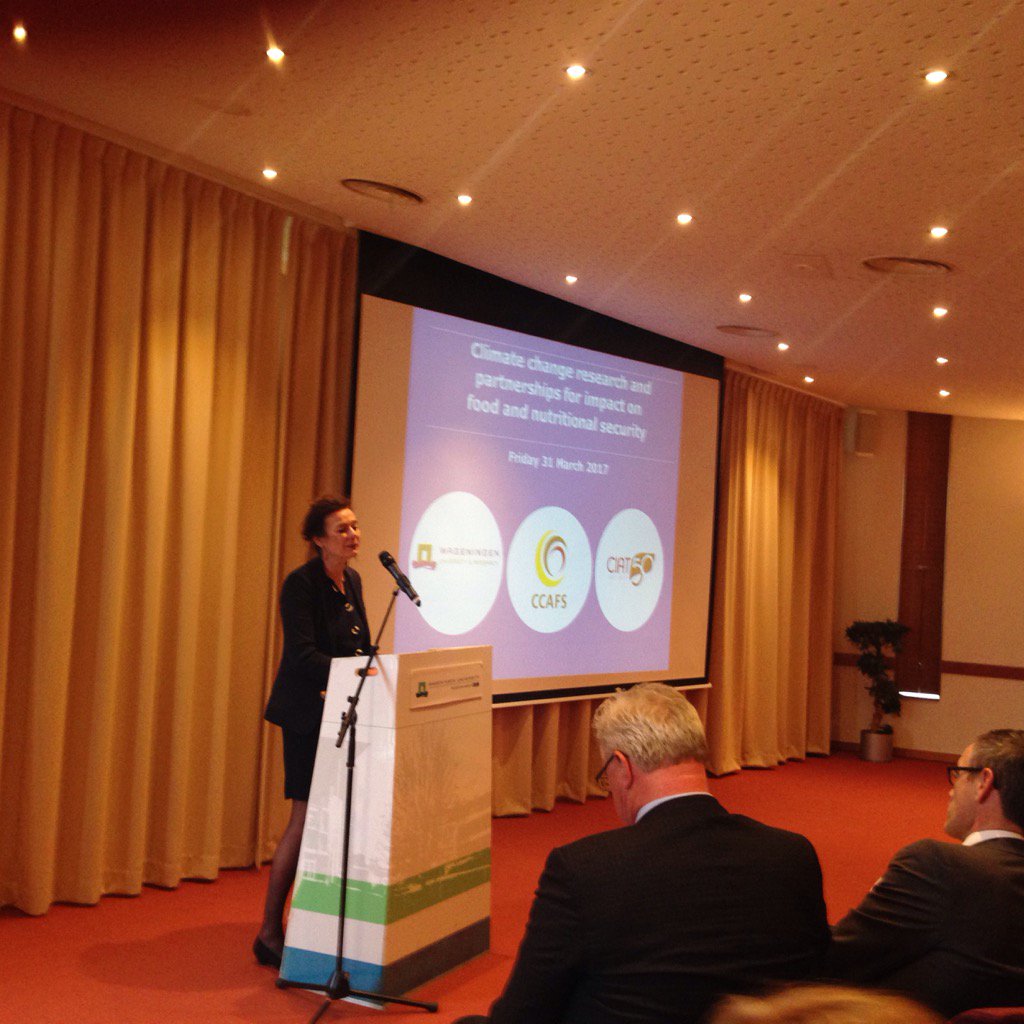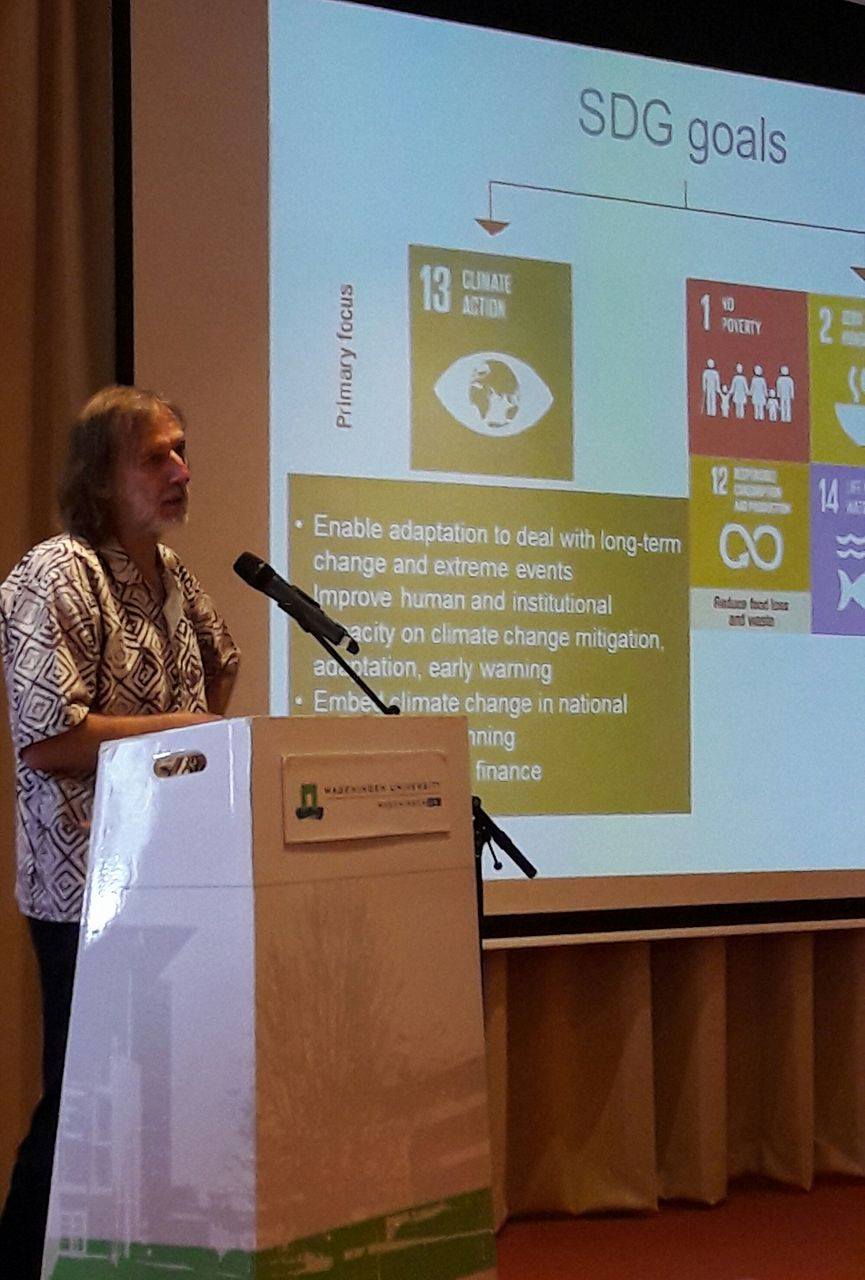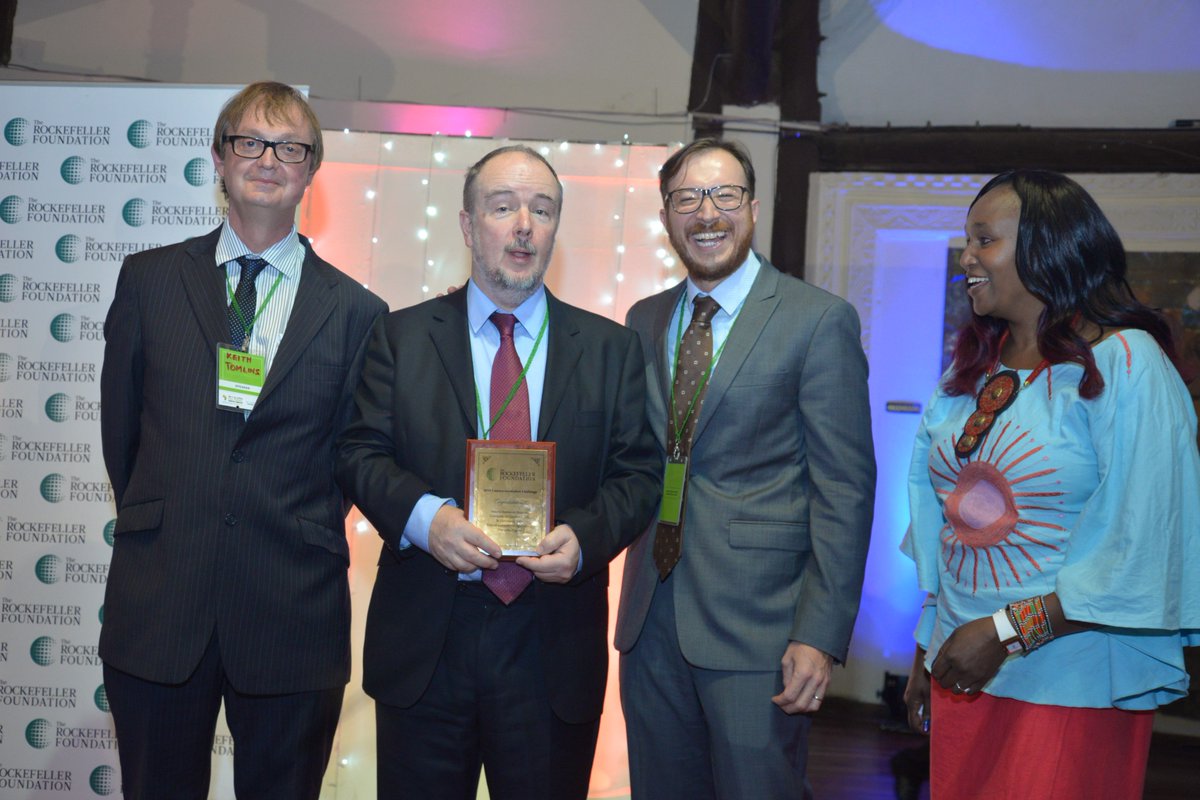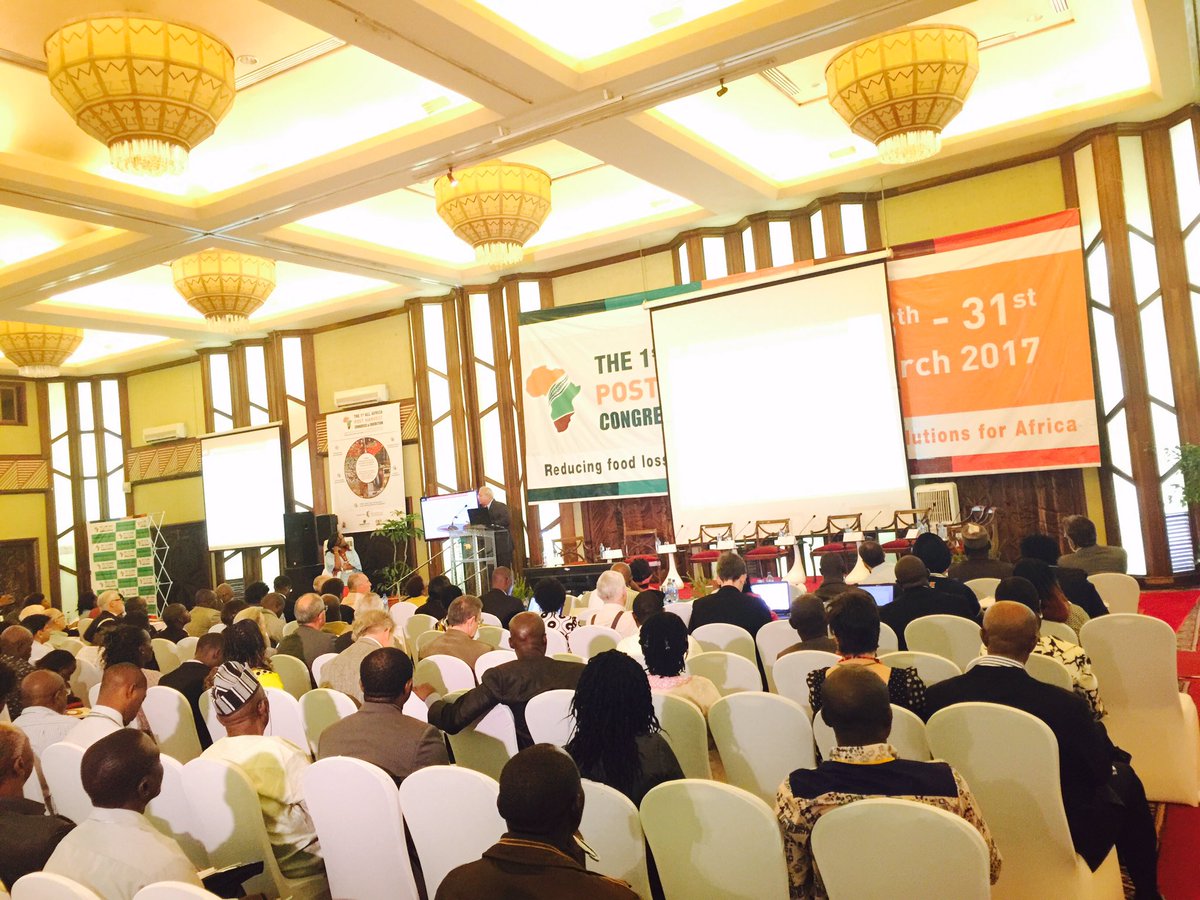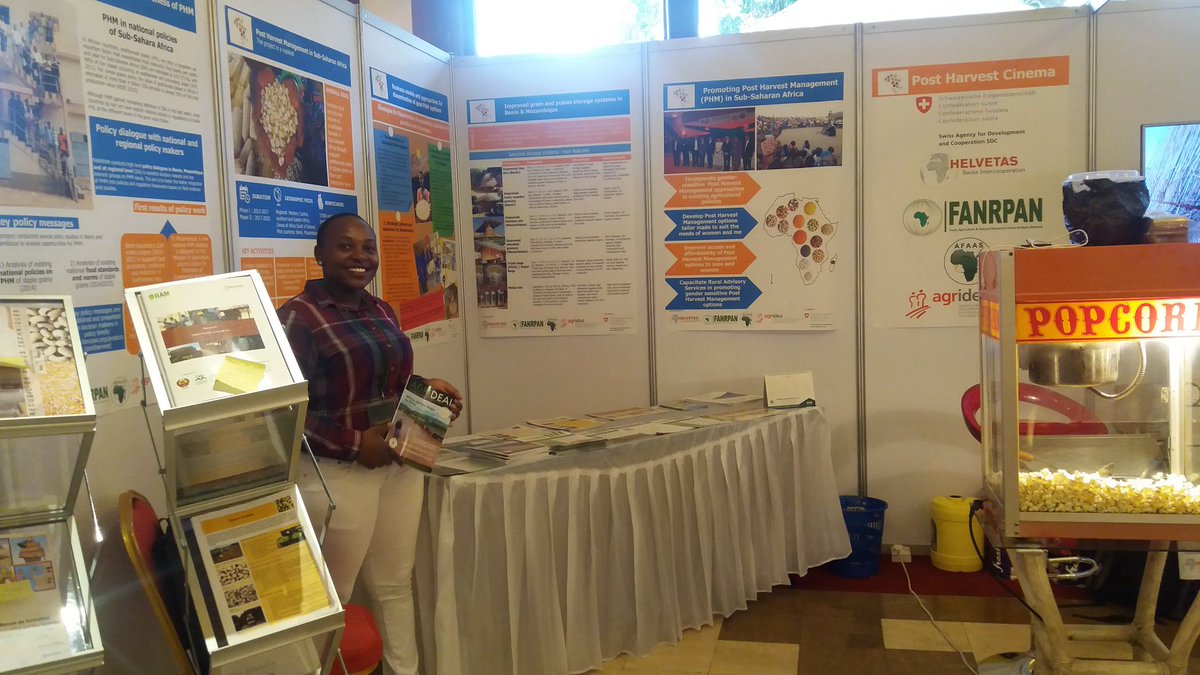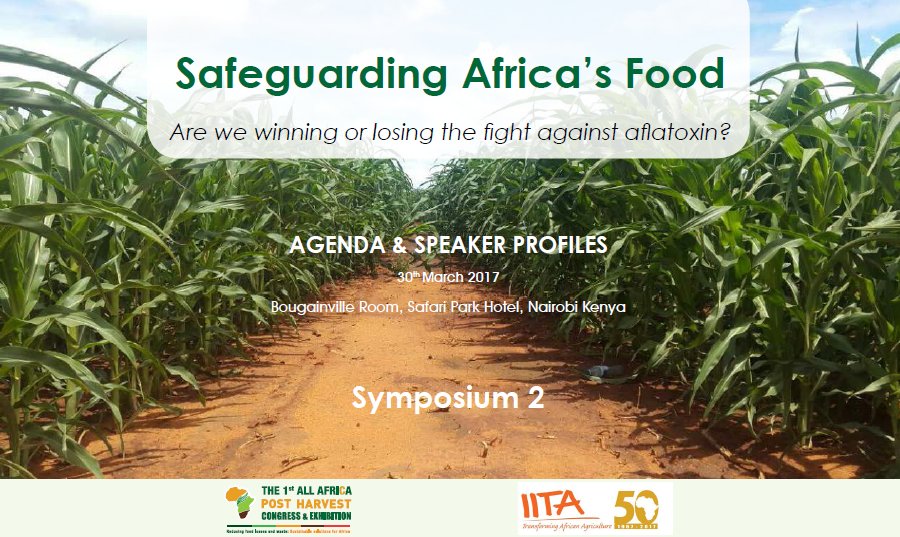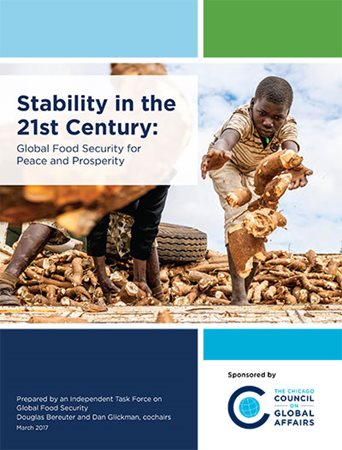
Prepared by an Independent Task Force on
Global Food Security
Douglas Bereuter and Dan Glickman, cochairs
March 2017, 128 pp.
Bipartisan leadership from the United States and action by the global community over the past 25 years has led to impressive results in the fight against the destabilizing forces of food insecurity. The US government, in close cooperation with the private sector and university system, is well positioned to expand its legacy of commitment to food security and not only bolster the livelihoods of millions of smallholder farmers and entrepreneurs around the world, but also open up new business opportunities and partnerships in emerging economies.
Related:
29-30 March 2017. Washington, DC. The Global Food Security Symposium 2017 brought together key multi-disciplinary stakeholders and members of the next generation to discuss how investments in global food security promote peace and prosperity worldwide. Convened annually by the Council, the Global Food Security Symposium discusses the US government and international community’s progress on addressing global food and nutrition security. At the symposium, the Council also released a major report recommending specific actions that the US government can take to bolster global food security in the face of emerging challenges.For the first time, the symposium was a two-day event. Prior to the full day of presentations and report release on March 30, the Council offered an additional day for participants to engage in solution sessions with global partners.
Extracts of the programme:
New Approaches to Using Big Data
Open data and data sharing, mobile and satellite data capture, innovative partnerships, the use/application of agricultural data and sustainable productivity/soil health, machine learning and predictive analytics
New Approaches to Using Big Data
Open data and data sharing, mobile and satellite data capture, innovative partnerships, the use/application of agricultural data and sustainable productivity/soil health, machine learning and predictive analytics
Measuring Improvements in Diet Quality While Building Sustainable and Productive Food SystemsFood security, nutrition and diet quality, tracking development progress, sustainable and productive food systems
Solution Session: Building Africa's Capacity and Human Capital
- How to attract and train the next generation of agricultural leaders?
- The world’s growing demand for food not only requires financial capital, it requires talented, well-equipped human capital in both the public and private sector to drive transformation.
- How attracted are talented young people to entrepreneurship in the food and agribusiness sector and what else is needed to attract even more?
- How are public sector activities such as extension, R and D, and higher education involving and attracting young people to meet current needs and build the pipeline of future leaders?
- And finally, what are the innovative public-private partnerships and that are emerging to build Africa’s 21st century food and agricultural system?
Discussion - National Security is Food Security: Strategic Leadership and a Moral Imperative
- Douglas Bereuter, Cochair, Global Food and Agriculture Program, Chicago Council on Global Affairs; President Emeritus, The Asia Foundation
- John G. Castellaw, USMC (Retired); President, Farmspace Systems LLC
- Ivo H. Daalder, President, Chicago Council on Global Affairs
- Suzanne E. Fry, Director, Strategic Futures Group, National Intelligence Council
- What can be done to make ongoing economic transformation more inclusive?
- What technologies, policies, and programs are most promising for rural populations and how are these affecting farm families, the development of small and medium enterprises, and women and young people in particular?
- What actions in the public and private sector stand to have the greatest impact on inclusive growth and what trends are emerging that merit attention?
- Harsh Kumar Bhanwala, Chairman, National Bank for Agriculture and Rural Development, India
- Thomas Jayne, University Foundation Professor, Michigan State University
- Agnes Kalibata, President, Alliance for a Green Revolution in Africa (AGRA)
As the climate changes, agriculture must also change and adapt to increased temperatures, more erratic rainfall, flooding, and increased pests and diseases. Increased population growth will also require greater productivity from a finite natural resource base. The only way to stay ahead of these dynamics is to invest in R and D to find durability. Public investments in R and D are critical for scientists engaged in blue sky research—potentially groundbreaking studies that could take decades to understand—and applied science that can help us respond to the next rapidly moving threat. Both play a critical role in helping America’s farmers compete globally while simultaneously offering breakthroughs that have increased food and nutrition security in some of the world’s most vulnerable places.
- What differentiates public R and D efforts from those of the private sector?
- How have partnerships between public research in the United States and international research institutions been beneficial at home and abroad, and what does the next generation of public research in partnership look like globally?
- Chair: Rajul Pandya-Lorch, Chief of Staff, Director General’s Office, International Food Policy Research Institute (IFPRI)
- Nick Austin, Director, Agricultural Development, The Bill & Melinda Gates Foundation
- Dan Glickman, Cochair, Global Food and Agriculture Program, Chicago Council on Global Affairs; Former Secretary, US Department of Agriculture
- Josette Lewis, Associate Director, World Food Center, University of California-Davis
THE FOLLOWING PROGRAMS ARE CURRENTLY OPEN FOR PARTICIPATION:
- New Innovator in Food and Agriculture Research Award – Open for Applications from Eligible Nominees through April 21
- Rapid Outcomes from Agricultural Research (ROAR) – Open for participation agreements
- Pollinator Health Fund – Open for Pre-Proposals through April 17 | Open for partnership discussions
- FFAR is building a research framework within seven cross-cutting Challenge Areas. Expert and stakeholder community input will help define and develop the projects (Grants, Prizes, and contracts) launched within those areas. While the Foundation is open to all opportunities to fund innovation in food and agriculture, strong preference will be given to ideas that fall within one of our seven Challenge Areas. Learn more about the Call for Concepts.
Related:
Six years after its publication, Council senior fellow Roger Thurow returns to Western Kenya to revisit the farm families first profiled in his book, The Last Hunger Season. Learn how much progress the families have made while consequently seeing the challenges they still face. Powerful imagery brings their stories to life while Thurow also examines the US legacy of supporting the eradication of hunger at home and abroad.






